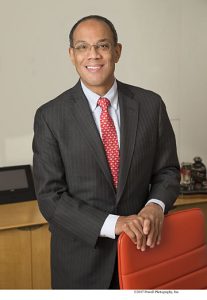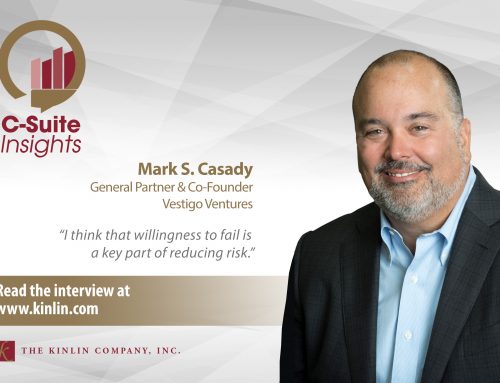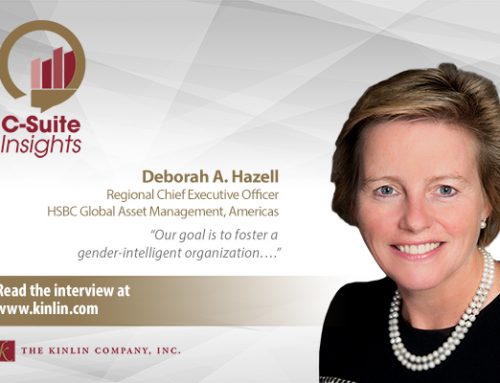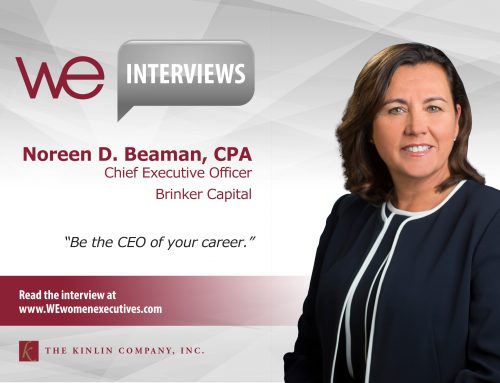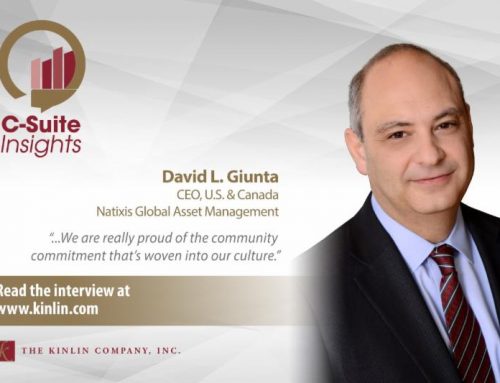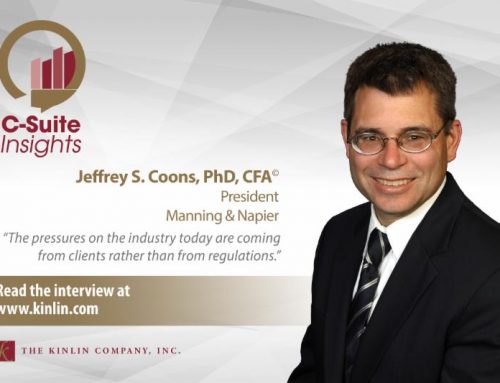John W. Rogers, Jr.
Chairman, CEO & CIO
Ariel Investments
As Chairman, CEO and Chief Investment Officer of Ariel Investments, John Rogers leads the research and portfolio management efforts of the company, working in tandem with Senior Vice President and Director of Research Tim Fidler and Vice Chairman and Head of Investment Group Charlie Bobrinskoy. President Mellody Hobson oversees all of the other aspects of the business, drawing Rogers into client service and new business development opportunities as needed. Additionally, John is the Lead Portfolio Manager for Ariel Fund (he has been at the helm of this fund since its inception in 1986!), as well as the Co-Portfolio Manager for Ariel Appreciation Fund, Ariel Small Cap Value, Ariel Small/Mid Cap Value and Ariel Mid Cap Value.
Ariel maintains an office in Chicago focused primarily on small- and mid-cap value investing, which the company has done for its entire 34-year-history, as well as a five-year-old office in New York City that houses the international and global team. The firm manages assets totaling almost $12 billion dollars and maintains a base of nearly 90 employees.
I recently had the pleasure of sitting down with Rogers to talk about the roots of his interest in investing, his business philosophy, his biggest concerns and his proudest moments.
Think independently
Rogers possesses a passion for investing that stretches back to his pre-teen years and has maintained a record of success for over three decades. I was confident that he would have many worthy insights to share, so wasted little time before diving into the conversation. You have weathered many market fluctuations since launching the fund 30 years ago, I noted. How have these challenges shaped you as an investor?
“As investors, we are battle-tested through many different market cycles, and I think one of the critical benefits of where we are today is that our leadership group went through that last financial crisis together and learned so much about each other. When you are tested the way we were at that bottom of the market cycle, you learn which teammates are truly contrarians who possess the ability and courage to go against the grain when it’s scary out there. That’s invaluable. The experience made us much better; we learned each other’s strengths and weaknesses, which really do reveal themselves during times of crisis.
“Two other important things I’ve learned during the past 30 years are concepts that Warren Buffett often talks about with respect to investing. The first is the idea that you have to be greedy when others are fearful – you have to be willing to be contrarian and independent in your thinking. The second is that our capitalist democracy has a way of fixing its problems. The last century was really hard – two World Wars, the Great Depression, a president assassinated, a war in Vietnam, recessions – everything you can imagine that could traumatize our country, extraordinary things that were tough, but we’re a resilient country. We come back, and we thrive again.
“I’ve always believed that it’s important to have a long-term outlook, that whatever the headlines are at the moment, if you’re willing to look beyond the three- to five-year horizons, you’re inevitably going to get back on track. A couple of years ago, for example, we were all worried about Greece, which was the headline of the moment. Then it was Brexit, and before that, a flu epidemic. There’s always something, and the market gets obsessed with it for a period. The ability to think long-term is critical. I think we’re better investors because we believe that so strongly. We’re always looking out over the horizon, not getting caught up in the short-term noise.”
Remember your teammates
Rogers’ observations offered a perfect segue into my next question. I’ve heard you speak repeatedly about playing basketball at Princeton under Coach Pete Carril, whom you’ve said taught you some of your best lessons. What do you mean?
“Coach Carril taught teamwork better than any teacher or coach I’d ever seen. Everybody talks about teamwork and selflessness, but in reality, they don’t change behavior. Carril was such an extraordinary teacher that those of us who had the privilege to play for him often changed our whole outlook and the way that we think about what it means to be a good teammate.
“For example, I remember one incident when Kit Mueller, a freshman, had around 20 points at half-time. He was overly confident, taking tough shots and going in himself instead of throwing the ball to an open teammate who had an easier shot. He came trotting into the half-time room, pleased as punch, chest out, proud, and Coach just lit into him, talking about how selfish he’d been, and how his behavior was totally inappropriate and un-Princeton-like.
“Another time Gordon Enderlee, the forward on the team, was just standing there not doing anything, while the guard, who was dribbling the ball up the court, was having a lot of trouble moving forward because he was being defended by a very good player. So, Coach stopped the practice and screamed at Gordon, ‘Didn’t you see your teammate? He’s struggling out there. You need to get yourself open so he can throw you the ball.’
“Coach was always underscoring the importance of thinking about your teammate first and understanding that if you help your teammate succeed, great things are going to happen for the team. That’s how he taught the game, and it changed my whole life. Once you learn to play like that – working with the idea that when you’re on the court, you’re thinking about how to help the team win instead of thinking about how you can score points yourself – it’s very freeing and it makes playing a pleasure.
“Also, because I grew up as an only child, it was just a wonderful, life-changing experience. I recently received the Woodrow Wilson Award at Princeton and had a chance to tell Coach, in front of the president of the university, that he was the best teacher I ever had and that the lessons that I learned from him were the most important for me.”
Seek diversity of ideas
In light of Rogers’ belief in the power of the team, I was eager to ask him about his own team at Ariel, in particular the remarkable gender balance that the company has achieved. This is an area that the financial sector continues to struggle with, I noted. How did you manage to break the mold and fill your company with so many talented women?
“Our head trader, our general counsel, our New-York based chief investment officer for international and global equities (who is also portfolio manager of Ariel’s international and global equity strategies), our CFO, our head of client servicing, and our head of human resources, as well as our Chief Marketing Officer Merrillyn Kosier and our President Mellody Hobson – both of whom you know – all of them are women. Basically, women run every department at Ariel except for research, and it was only recently that operations there switched from a woman to a man.
“I think this happened for two reasons. One, my mom was the first African-American female to graduate from the University of Chicago Law School. She was brilliant. Granted, I’m biased, but she was really smart and extraordinarily hardworking. I had this great mom and a great dad – both incredibly smart and highly accomplished – and it was a natural thing that Mom was smart, went to work every day, and got things done. That had a big impact on me.
“The second reason was that I went to high school at the University of Chicago Lab School. They run this great pre-Kindergarten through 12th-grade school; my daughter graduated from there as well. At any rate, all of us who graduated from the school got to college and realized, ‘Hey, all the black students are sitting at one table, and the Latino students are at another table, and there’s anti-Semitism going on, and people aren’t treating women the same way.’ At that point, we all realized how naïve we were.
“Hyde Park, where the Lab School is located, was an oasis where people treated each other as individuals and respected one other for their thoughtfulness, their personality and their values, rather than making judgments based upon religion or sex or race. Then there’s the University of Chicago, an institution that’s all about ideas and intellectual curiosity. The environment promotes this idea that it’s not about who you know or who your parents were. It’s a very unique culture, and I don’t think it’s a coincidence that the first African-American woman senator, Carol Moseley Braun, was from Hyde Park, as well as our first African-American president, Barack Obama. The Rainbow Push headquarters are in Hyde Park, too. There’s just something unique about that community.
“Coming out of that environment, you’re comfortable with leaders from all different types of backgrounds, so when I started the business, my attitude was, ‘Hire the best people.’ Occasionally, I have to remind my teammates of what we’re all about, because it’s natural for people to fall into their comfort zone and hire someone who’s from their own background or resembles them in some way, and I have to say, ‘That’s not the Ariel way.’ We want to keep robust diversity as a big core value of our firm.”
What about the women that you hire, I queried. How do you help them progress in their careers? Do you have specific mentoring programs or is the support system just organic because there are so many role models already in place?
“Two things happen. People tell us that when they go into meetings at Ariel, it’s a fresh experience. They’ve never been in meetings where there are so many more women than men in the room, individuals with real leadership responsibilities who are running their departments. I think that’s something unique. We’ve also hired people who say that when they interviewed, it profoundly impacted them to see women in leadership roles. I think people see that we celebrate the successes of men and women equally.
“We’ve had lots of superstars at the firm, and whether it’s Mellody Hobson, Arne Duncan, or others who’ve come through, you always want to make sure that you create opportunities for everyone to shine. It’s not just about you – if there are boards that someone can join or leadership roles that others can take on, you encourage that involvement. You’re always trying to find ways to create opportunities for people to demonstrate their leadership skills, internally or externally. Then people like Mellody just take off, but so do others. Several of our teammates, including Merrillyn and our general counsel Mareilé Cusack, are on all kinds of fun, exciting boards and providing leadership outside of Ariel.”
Encourage financial literacy
Given Rogers’ obvious belief in empowering those around him, I was eager to speak with him about the motivation behind his very public commitment to improving financial literacy in future generations through the Ariel Education Initiative. I was also curious as to how he hoped to change the landscape. Knowing that financial literacy is a huge issue in this country for many people –not just children – what do you think we should be doing to address this problem, I asked.
“I inherited some of my belief in the importance of education from my father. He frequently told the story of how he was talking to a white lawyer about the markets, which led to a conversation about how African-Americans were not comfortable with investing. The attorney said, ‘I think your community should know as much about the stock market as my 12-year-old son,’ and described to my dad how he bought his son stocks every year for Christmas and his birthday. My father said, ‘When my son’s 12, I’m going to do exactly the same thing to expose him to the markets. My son will own real stocks, I’ll let him keep the dividend checks, and he’ll read the quarterly and annual reports and learn.’ So that’s where it started.
“Because of the way that African-Americans came to this country, as well as the huge wealth gap between African-Americans and white Americans, the Jim Crow laws, the discrimination that’s still around, etc., we haven’t had wealth passed down from generation to generation. We didn’t have aunts and uncles and grandparents sitting around the dinner table talking to us about the stock market and investing, because we didn’t have that multi-generational wealth. As the first African-American-owned money management firm in the country’s history and the first mutual fund company, it seemed natural that Ariel should try to help the African-American community gain more exposure to investing; learn the magic of compound interest and how the markets go up over the long run; and have that opportunity to create wealth. That was the genesis of how we started to think about it. We also realized that a lot of opportunities had come to us because of our diversity and inclusion, so we felt a responsibility to give back and try to make a difference. And if you’re going to give back, why not do it in the area where you have some true expertise?
“Because of the Ariel Community Academy that Arne Duncan and his sister started when they were working at Ariel, which is now over 20 years old, President Obama asked me to chair his council on financial capability, which was another way of describing financial literacy. I did that in the first term, and then in the second term, we worked on changing the name of the council so it was about financial capability for young Americans. Our final report to the president indicated that the way to solve this problem is to have robust financial literacy programs in the public schools, starting at the earliest ages. That way, just like learning a language, people get comfortable with the terminology and the things you need to know and understand in order to invest and save. We also recommended encouraging businesses within communities, particularly financial institutions, to partner with urban public schools. We believe this will enhance financial literacy education and also offer young people role models, with the hope they’ll begin to see financial services careers as an option and think about entrepreneurship and building businesses in ways they otherwise might not.
“Our vice chairman, Charlie Bobrinskoy, has also created a program with the Big Shoulders Fund for the inner city Catholic schools in Chicago that provides eighth grade students the opportunity to learn about the stock market by creating portfolios in the classroom with real money and then realizing the benefit of their investment decisions. It’s gone very, very well; today 57 Catholic schools have programs that are modeled after Charlie’s idea.”
Don’t vilify money managers
Having covered a lot of ground within Ariel, I turned my attention to the financial sector at large. Considering some of the hot-button issues in finance today – changing distribution in fee models, the shift to passive investing, the impact of technology on our business, etc. – is there an issue that you view as critically important?
“I find the vilification of all of us who manage money inappropriate. It’s one thing to say there’s a good case to be made for passive management, but that doesn’t mean that those of us who have chosen to pick stocks for a living are bad people, or that people who think they have a knack for picking money managers or stocks are dumb or irrelevant.”
“The Bogle perspective has become part of the narrative and that leads to the kind of regulatory overreach that culminated in the fiduciary rule. There are at least five regulatory bodies that regulate our industry, from the SEC to FINRA to the Department of Labor, yet all of us who have taken all the exams over the years know that you have to think about your customer first, and that whatever you put into their portfolios has to be appropriate for them and their families. That’s the only way you can be successful in this industry.”
“Granted, there are crooks and unethical people in every industry, but I think that Bogle has created this narrative that our industry is filled with people who are inept, unethical, stupid, and immoral, and I think that’s wrong. On the contrary, having been in this business for 34 years, I’ve found that people have extraordinary integrity and an extraordinary commitment to winning, as well as a determination to do the right thing for their customers and shareholders, and I just don’t understand how we’ve lost this narrative. I think maybe our trade associations and others have not fought back effectively and thoughtfully around this issue. So that’s my major concern right now: this perception has taken on too much of a life of its own.”
Make a difference
As the interview neared its end, I couldn’t resist asking Rogers to reflect on his amazing career. Looking back, what stands out the most? What accomplishments make you feel the best?
Clearly this is a performance game, so I’m really pleased that our Ariel Fund, which is 30 years old, is in the top decile out of all equity funds going back to 1986, and number one in our category as of March 31, 2017, according to Lipper. Not a lot of funds in our category go back to 1986, but even with that survivorship bias, we’re very, very proud to be showing that kind of performance. Since the March 9, 2009 lows, we rank ninth out of 1,551 funds according to Lipper and rank number one out of 251 funds in our Morningstar category, as of March 31, 2017. That’s probably the thing that we’re most proud of, and led us to be honored in the book, The World’s 99 Greatest Investors.
“The second thing I feel really good about are the kind of leaders that have been developed at Ariel. To see Mellody’s success – Time Magazine included her in a list of the 100 most influential people in the world – to witness her contributions to financial literacy and diversity and see her demonstrate how dynamic women can make a difference in the financial service industry is incredible. I take a lot of pride in watching how well she’s developed.
“Then there’s Arne, who started off as an intern just like Mellody, and went on to accomplish so much. In his early days here, he was running our Ariel Community Academy and ‘I Have a Dream’ program and then he went on to serve in President Obama’s cabinet as Secretary of Education. Seeing those things makes you feel like maybe you’ve made a difference.”
Cultivate the next generation
It’s clear that Rogers believes strongly in cultivating the next generation of leaders and is not afraid to take a hands-on approach in doing so. In speaking with him, I learned that not long after founding Ariel Investments in 1983, he realized that he could expose a diverse group of young people to the financial services industry through internships at the firm. As our interview drew to a close, he shared with me a recent event that the firm had hosted, an inaugural ‘Intern Homecoming.’
“On March 8, we celebrated the culmination of three decades of Ariel interns who have worked at the firm with a special fireside chat moderated by me and featuring two of our best-known interns: Mellody (Class of 1989), and Arne (Class of 1987). They shared some of the lessons they’ve learned over the course of their careers—and from the people that have had a major influence on their lives—with an audience that included former Ariel interns, board members and colleagues. Each panelist shared personal and professional experiences that they believe have contributed to their success and leadership style. Some of the major themes we touched on during the discussion and in the following Q&A included relationships, leadership, teamwork, learning from mistakes, and the importance of mentorship.”
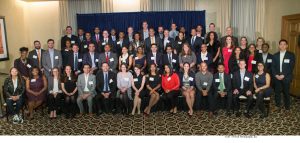
Ariel Investments Intern Reunion 2017
![]()

